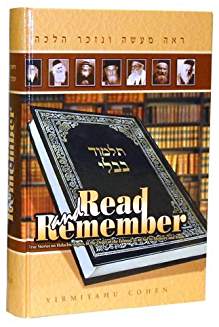Shabbos 139b: If someone died on the first day of Yom Tov – only non-Jews may bury him. On the second day of Yom Tov – Jews may bury him.
Shulchan Aruch Orach Chaim 526:2: If someone died on the first day of Yom Tov, it is forbidden to hold the body overnight until Yom Tov Sheini so that Jews may bury him.
שבת קלט ע”ב: מת ביום טוב ראשון ־ יתעסקו בו עממין, ביום טוב שני ־ יתעסקו בו ישראל.
או”ח תקכ”ו ס”ב: מת ביו״ט ראשון אסור להלינו עד יו״ט שני כדי שיתעסקו בו ישראל.
The Shivchei Habesht tells us that the Baal Shem Tov passed away on the first day of Shavuos. On the first night of Shavuos the talmidim gathered and stayed up all night, and he spoke Divrei Torah before them. In the morning he asked them to gather in his house, and he requested that Reb Leib Kessler and someone else take care of his burial. He taught them how to tell that his soul was departing from each of his limbs in turn.
All the people of the town of Medzibuzh came to say good Yom Tov to him, and he spoke Divrei Torah to them. And then, at the meal, he said to his talmidim, “Until now, I have done chesed with you; now you do chesed with me.” He stood up and went to the outhouse. His attendant wanted to accompany him, but he said, “Why is today different, that you wish to accompany me?” So he did not follow him. The Baal Shem Tov also gave his talmidim a sign: at the moment of his death, both clocks in the house would stop. When he returned from the outhouse, he washed his hands and the larger clock stopped. The talmidim tried to prevent him from seeing the clock but he said, “I know that the clock has stopped, and I’m not worried about myself, because I know that as soon as I leave this door I will enter the other door.” He sat on his bed and asked them to stand around his bed as he told them Divrei Torah about a pillar stretching from the lower Gan Eden to the upper Gan Eden. He asked them to say Viyhi Noam, and he lay down and sat up many times in succession, saying words so softly that they could not hear. Then he asked them to cover him with a sheet and he began to tremble just as he would during Shmoneh Esrei. Then he rested and they saw the small clock stop. They waited a bit, then tested his nostrils with a feather and knew that he had passed away.
For many years, people disagreed as to whether the Baal Shem Tov had passed away on the first or the second day of Shavuos. According to the author of Kerem Yisroel, already in the first year people did not know the day of his passing. This tradition is also quoted by Betzalel Landau in his book “Habesht Uvnei Heichalo”. Each of his biographers chose whichever date they felt was right.
However, the correct tradition is preserved in the Shivchei Habesht: that it was the first day of Shavuos. This is also the tradition of Rabbi Isaac of Komarna (Heichal Habracha, Parshas Teitzei), as well as the tradition of Chabad Chassidim (Sichah of the Rayatz 20 Kislev 5692).
The question was finally laid to rest with the discovery of the siddur of Rabbi Avrohom Shimshon of Rashkov, the son of Rabbi Yaakov Yosef of Polonne, who was the Baal Shem Tov’s leading talmid. The siddur was completed 13 days after the passing of the Baal Shem Tov, and it contains the following sentence, “I received the tradition of annulling a bad dream from my master, Rabbi Yisroel Baal Shem of blessed memory who, due to our many sins, passed away on the first day of Shavuos which was Wednesday of the year 5520…” Checking the calendar, we see that the first day of Shavuos fell on a Wednesday in that year. (Furthermore, the second day of Shavuos cannot fall on a Wednesday in any year.)
(Hayachid Bedoros p. 136-137)
Rabbi Moshe Zoberman heard that the true date of his passing was the first day of Shavuos; however, the talmidim did not make it public until the second day because they wanted to have him buried by Jews. Although the Shulchan Aruch says not to do this, the Raavad, the Meiri and the Shitah Mekubetzes (brought by the Biur Halacha) say that if the departed was a great and well-respected man such that it would be an insult to his honor to be buried by non-Jews, they may keep him overnight until Yom Tov Sheini.
(Rabbi Zoberman, tape on Shabbos 139 33:14-34:00)
